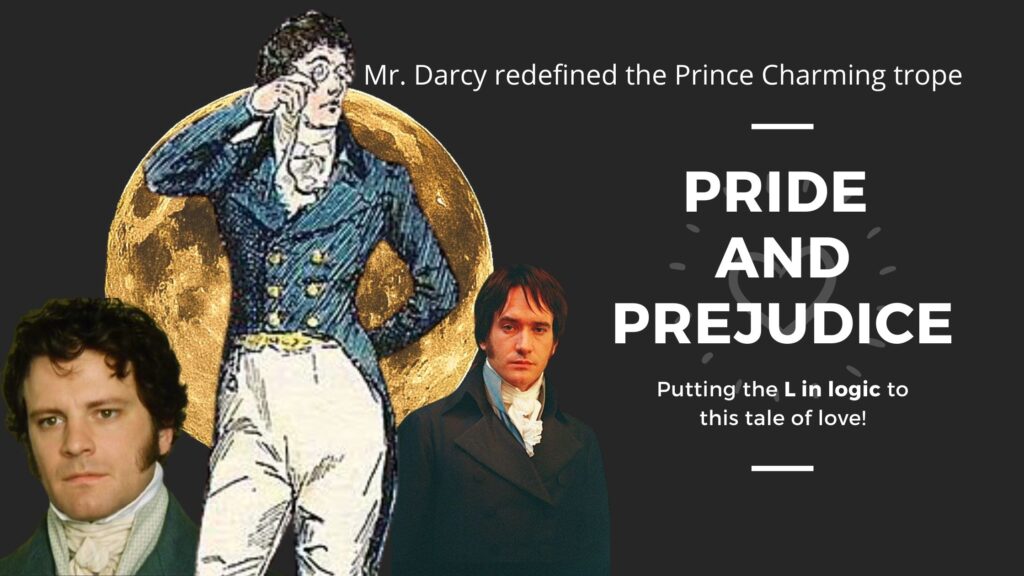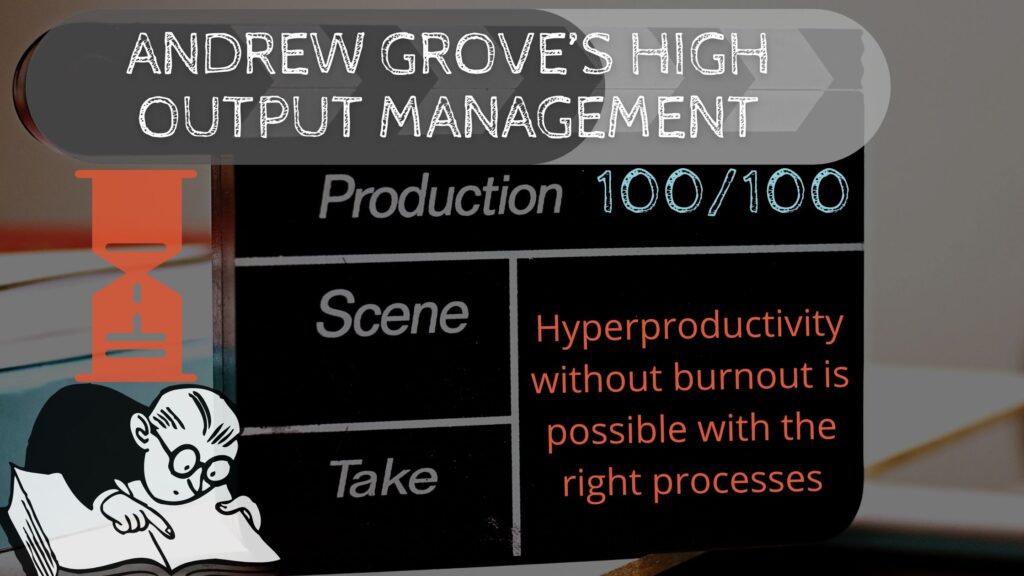Mr. Darcy And His Charms – Why They Work On Audiences Across Generations (& Genders)
Jane Austen is an author who knows her readers as well as she knows her characters. Nothing proves my bold statement better than the character transformation and perception of Mr. Darcy from the delightful regency era romantic fiction, Pride and Prejudice. She takes us on a journey which progresses sluggishly and allows readers to be indoctrinated to the biases of the narrator. As well as see the world through the eyes of an individual from Meryton, a fictional town in 18th century England.
There is a short answer to this phenomenon and it is the holy trinity of looks (doesn’t look like an ogre), influence (wealthy, wise and knows the right people) and intentions (the prejudice came from social exposure whereas the pride came from assumptions – both of which he casts away without being urged to). Now, let’s get on to the long, long answer, shall we?
The specifics:
Confirmation Bias and Groupthink
As Darcy enters the room with his party, the unknown narrator triggers a confirmation bias in the minds of the readers by telling us the following about Darcy.
Mr. Darcy soon drew the attention of the room by his fine, tall person, handsome features, noble mien, and the report which was in general circulation within five minutes after his entrance, of his having ten thousand a year. The gentlemen pronounced him to be a fine figure of a man, the ladies declared he was much handsomer than Mr. Bingley, and he was looked at with great admiration for about half the evening, fill his manners gave a disgust which tamed the tide of his popularity; for he was discovered to be proud; to be above his company, and above being pleased; and not all his large estate in Derbyshire could then save him from having a most forbidding, disagreeable countenance, and being unworthy to be compared with his friend.
(Austen, 2003)
People favour the information they trust. If someone trustworthy says something, like say the ultimate gossip of the city, we as a people have the tendency to believe them over the information available. Also, when in groups, especially in social settings, people have the tendency to think as a group rather than an individual. The phenomenon of groupthink strikes again to create a wonderful narrative discourse.
When Darcy enters the room with his party, Austen uses passive voice like a skilled surgeon to carve out intention and obstacle that goes on to define the plot of the book. Notice how people openly gawk at Darcy. They openly talk and gossip about him. The intensity of their speculation is so intense, Darcy goes from a fine figure of a man to a most forbidding, disagreeable countenance, and being unworthy within just five minutes.
He becomes the target of groupthink and we the reader readily agree with the busybodies from Meryton. We see Darcy as a proud, prejudiced and privileged young man who slights Lizzie with no regards to her feelings. We don’t even consider the fact that he might be shy or socially awkward or might have some neurodivergence issues. We also forget how he is a nobleman who is probably used to the mannerisms and decorum of noble society. Despite the fact that Lizzie eavesdrops on his private conversation where he insults her, we dislike him and pity her.
The Inciting Incident
As we all meet Darcy with that introduction, Lizzie (Elizabeth Bennet) is roaming around the room with her unconventional opinions and preferences. This is how she describes the world to us.
The more I see of the world, the more am I dissatisfied with it; and every day confirms my belief of the inconsistency of all human characters, and of the little dependence that can be placed on the appearance of merit or sense.
(Austen, 2003)
She is just as prejudiced and prideful as Darcy. But to us, she is a darling. The inciting incident occurs when Darcy shuns her beauty and grace. We feel for her instead of them both – the strong woman living in a world that won’t appreciate her independence of thought and the shy man reacting to the world honestly and earnestly. With this incident, the obstacle is presented (they are equally prideful and prejudiced) and the intention is set (how they overcome their pride and prejudice). The game of transformation is afoot.
Over and over, we are told and shown how different Lizzie is from her sisters who each represents the predominant shades of regency era women. Jane is the ideal woman who brings repute to the family. Mary is the rare and self-assured intellectual woman who remains haughty and single. Lydia and Kitty are young, gullible flirtatious women who bring dishonour to their families. Then there’s Elizabeth, Lizzie, the unconventional woman, one who is loved by her father and the most eligible man in town in spite of her wishes.
Lizzie is unconventional in that for once, we get a strong female character who doesn’t fit the stereotype. Unlike perfect, stubborn and judgmental feminine leads, written to imply strength of character, Lizzie is imperfect. The same applies to Darcy. He is a strong male character who doesn’t bow down to expectations. Darcy has flaws which he later remedies.
Adorably enough, Darcy makes fun of her for being ahead of her time and then goes and falls head over heels for her. He isn’t as pompous in his assumptions as Lizzie is but he is pompous enough to incense us. In fact, this inciting incident and Lizzie’s prejudice for Darcy is what makes her such an easy target for George Wickham’s lies.
Witty Banter between Lizzie and Mr. Darcy
This book is so witty. The accidental romantic tension between Darcy and Lizzie is palpable for the readers and the observers. With Darcy doing everything in his power to avoid Elizabeth and her attempting to do the same, whenever they meet, and they meet a lot, we see awkward sparks fly.
This banter transforms from spite to teasing to love as the plot progresses. Lizzie literally goes from, “anybody but you” to “you are the apple of my eye”.
When Darcy blurts out his proposal, in the heat of the moment, the subplot just nails him in the foot. Mr. Bingley and Jane are not going to be married and Lizzie is told how it was Darcy who caused this catastrophe.
She is angry. She is hurt. Yet, she goes from this:
From the very beginning— from the first moment, I may almost say— of my acquaintance with you, your manners, impressing me with the fullest belief of your arrogance, your conceit, and your selfish disdain of the feelings of others, were such as to form the groundwork of disapprobation on which succeeding events have built so immovable a dislike; and I had not known you a month before I felt that you were the last man in the world whom I could ever be prevailed on to marry.
(Austen, 2003)
…to falling in love with the man because he remedied his mistake and dropped his heart at her feet, even if she were to stomp on it, again.
She literally goes from anybody but you to you dare insult my sweet bébé.
I love him. Indeed he has no improper pride. He is perfectly amiable. You do not know what he really is; then pray do not pain me by speaking of him in such terms.
(Austen, 2003)
This witty banter helps create the slow transformational burn which is the brilliance of Pride and Prejudice.
Possible Neurodivergence of Mr. Darcy
Even though Darcy’s story runs parallel to Lizzie’s, we are rarely given a glimpse at his internal struggles. We think he is a jerk. To me, he seems to have anti-social tendencies commonly showcased by shy introverts who happen to be on the spectrum. My friend, Mel Cyrille alerted me to this fact. These are individuals who dislike integrating and socialising with people they don’t know, despise physical contact with anyone besides friends and family, and are honest to a fault.
The narrator lets us into what Darcy’s persona might actually be with these words.
She began now to comprehend that he was exactly the man who, in disposition and talents, would most suit her. His understanding and temper, though unlike her own, would have answered all her wishes. It was a union that must have been to the advantage of both: by her ease and liveliness, his mind might have been softened, his manners improved; and from his judgement, information, and knowledge of the world, she must have received benefit of greater importance.
(Austen, 2003)
Lizzie didn’t understand him. We failed to comprehend his discomfort with society. Then we learned about him through his actions. Like Lizzie and everyone else, we fell in love.
Historical Context
It is a truth universally acknowledged, that a single man in possession of a good fortune, must be in want of a wife.
(Austen, 2003)
This line, which aged like milk, once again anchors your bias. You know you are being told the story of a time whose morality and standards are different from yours.
The historical context to Lizzie’s rejection of Mr. Collins and Mr. Darcy is just surreal. Mr. Collins represents security whereas Mr. Darcy represents wealth, social supremacy and security. The fact that Lizzie rejects them both with no thought just shocks you because now, love is truly in play. Whatever happens here after will be about love. Isn’t that just adorable?
Mr. Darcy and his Wealth
Darcy makes £10,000 a year. We know this from his introduction. We also know he hails from a legacy family. He comes from a long line of landlords (ignore the implication of slavery in this context (Blackburn, 2011)).
During the regency era, gentlemen like Mr. Darcy made and maintained wealth via landholdings, inheritance, investments, dowry from marriage and social connections. He is the only son of his illustrious father and has zero obligations to society. He presents with no vices. He seems to have a lot of wealth and he doesn’t spend much in perpetuating outward appearances.
Darcy was used to people throwing themselves at him courtesy of his wealth and social standing. Every stranger who interacted with him had some ulterior motive. He notes this about women.
A lady’s imagination is very rapid; it jumps from admiration to love, from love to matrimony in a moment.
(Austen, 2003)
From this to marrying Lizzie, he makes a transformation. Lizzie obviously wouldn’t have any significant dowry to offer so for the purpose of this discussion, I won’t count dowry as a legitimate source of income for Darcy. Let us now inspect Darcy’s wealth.
Social Influence
The clue of this comes from his title. Victorian and Georgian England had a strict name etiquette. Titles, honour and respect were more important to people than anything else. First names were rarely used and when they were used, they implied deep intimacy or disrespect. In fact, Mister/Mistress is a rank below Baronet/Baroness. Mr. Darcy is therefore highly placed in society because everyone calls him Mister Darcy. Even his close friend, Mr. Bingley calls him Mr. Darcy.
The more highly placed one is, the more success they can compound in the future. Darcy has this aspect of his life thoroughly sorted.
Inheritance
Mr. Darcy inherits his estate and a lot of land from his family. His annual income pales in comparison to the interest he probably earns from his net worth (generational wealth). The art exhibit and the massive library in his house implies how ostentatiously wealthy he is. He also doesn’t have to share his inheritance with anyone as he’s a sole proprietor.
Yearly Rent
On to his £10,000 a year, I think he makes so much more in rent alone.
According to Wickham, even with arrears (people are back on paying the rent sometimes so their final rent now becomes a liability), Darcy did indeed make 10,000 a year making his actual earning even higher. His servants claim him to be a benevolent landlord which becomes proof of the fact that he probably gave them time to pay their liabilities.
Combine the fact that when Pride and Prejudice was written (1797) and widely published (1812), rent paid on estates simply escalated as inflation increased (Mortimer-Lee, 1994). The family income of people who rented from landowners (gentry) went down courtesy of the inflated economy. The landowners took advantage of the time by increasing costs on everything. Between 1775-1815, estate owners’ income went up by a whopping 90% while the overall cost to run an estate went up by a measly 25-33% (Mortimer-Lee, 1994). Using a Historical Currency Converter, Darcy’s annual income would at least be £17,000 a year. By today’s standards, that is approximately £800,000 per year. If he were to put this money in a bank, at a 4% interest, he would multiply his wealth significantly.
Just think about this for a minute. This fancy dude was clearing £17,000 (present day £800,000) in just rent. That’s passive income goals. If he were alive in our era, he’d be asking us to subscribe to his YouTube channel and signup for his ‘How to get rich‘ course on SkillShare.
Investment
Darcy is a smart guy who reads a lot and writes long letters, goes on frequent travels and is well-respected by the gentry. He definitely had other sources of income, primarily investments. I don’t have any estimates for this because money from investments and an estate was recorded separately and the book doesn’t give us any information about the same.
The fact though remains. Darcy definitely had other investments, not just in land but also in ventures. He most definitely also had cheap labour (read: slaves) but given how we are gushing about the guy, we will ignore this implication willingly.
A Love-Hate Romance to Remember
Darcy gives Lizzie some cold, hard facts. He’s eventually proven to be right but she doesn’t want him to be right. We hate him for saying what he did. So does Lizzie. Then Darcy salvages the situation. The hate that has been building up begins to transform to love.
For me, this is the beauty of Pride and Prejudice. Unlike most love-hate romantic fiction where the transformation happens suddenly, hate suddenly transforms to love, Pride and Prejudice is the outlier. The love between Lizzie and Darcy doesn’t transform suddenly. There are no unreal reasons presented for the sake of plot. Their relationship progresses from disdain to hate to interest to love over three volumes at an incredibly slow pace (as is the case with most good love stories).
Mary Bennet tells us something important. What was perceived as rude, vanity was actually pride, a self-perception.
Vanity and pride are different things, though the words are often used synonymously. A person may be proud without being vain. Pride relates more to our opinion of ourselves, vanity to what we would have others think of us.
(Austen, 2003)
Transparency
We know Mr. Darcy doesn’t lie. What he says out loud is what we get.
Jane boastfully proclaims how love means everything to her and yet every decision she makes moving forward is calculated with the air of practicality.
Do anything rather than marry without affection.
(Austen, 2003)
Lizzie jokes with Jane about her matrimonial decisions. She is actually determined to marry for love and she puts her ‘no’ when the money’s shows up, twice.
I am determined that only the deepest love will induce me into matrimony. So, I shall end an old maid, and teach your ten children to embroider cushions and play their instruments very ill.
(Austen, 2003)
The same applies to Mr. Darcy. He is honest to a fault. Even when he confesses to Lizzie, he mentions words like against my better judgement to state his honest state of mind (and heart).
In vain I have struggled. It will not do. My feelings will no longer be repressed. You must allow me to tell you how ardently I admire and love you.
(Austen, 2003)
In a world full of pretences and lies, people who tell the truth are refreshing, aren’t they! We love that about Lizzie. We eventually come to love that about Darcy.
Transformation of Mr. Darcy
The thing that makes Mr. Darcy the most likable is his transformation. From an insufferable brute that inserts his opinions into the subplot (Jane and Mr. Bingley) to becoming the empathetic man who puts the needs of our protagonist (Lizzie) before his own, Mr. Darcy’s transformation is a satisfying slow burn.
We have a biased impression of Darcy, which anchors in place given Mr. Wickham’s lies. We are convinced of Darcy’s villainy. He meddles between the budding romance of his closest friend. Then he proposes to Lizzie in a revolting way. He insults her family and their social behaviour, he hints at her standing in society, and he admits to feeling tortured by the prospect of being in love with her. To us, his impression now is that of a gentleman not worthy of the name.
Then Lizzie visits Darcy’s estate. She hears of his generosity (and observes his wealth). Mr. Darcy returns, wet and dishevelled from a random swim, and he treats Lizzie and her companions with the utmost respect. Lizzie contemplates a possible reconciliation with Darcy. However, Lydia runs away with Wickham. The direct and indirect implications of that choice put Lizzie in a turmoil.
Everything Darcy pointed about her family has come to pass. With what Lydia did, the social repute of her family was destined to be in tatters. The accidental chemistry she shared with Darcy would now be a thing of the past because he would never interact with someone from an unsuitable family. All of Lizzie’s hopes with Darcy were crushed.
A letter then arrives heralding Lydia and Wickham’s wedding. The elopement and the embarrassment it would have brought turned into jubilation. Lizzie’s worst scandal was handled by, she later finds out, Mr. Darcy. Where anybody else would have bailed, Darcy stepped in and did what Lizzie needed. He didn’t rescue her. He didn’t do this as some grand gesture. Darcy simply saw Lizzie and her pain. Then he did what Lizzie needed done. He didn’t make a fuss. He didn’t ask for anything. He just did what any loving partner would do.
His character simply transforms in our senses. This is also the moment where Lizzie sheds her own pride and prejudice. Together, they both transform each other for the better. The jerk is now the caring saviour. He also puts a cherry on top of this decedent literary-cake by undoing his biggest mistake by bringing Jane and Mr. Bingley together.
To conclude,
This story is incredibly satisfying. From being misanthropes who didn’t believe each other and the world around them to being two content people who look forward to exploring the world. We simply fall in love with the entire story and everyone in it.
Elizabeth’s individuality wins the proud and prejudiced man’s heart over his time’s social structure (which involved proprietary and hierarchy). The man’s candour and his ability to cast aside his prejudiced ways and pride to help the woman he loves wins us over. The transformation completes. Rather than the superficial love stories about appearances and wealth, this book presents intellectual attraction over a physical one, something rare, not just for the time but also holds the test of time.
They walked on, without knowing in what direction. There was too much to be thought, and felt, and said, for attention to any other objects…
(Austen, 2003)
[email-subscribers-form id=”1″]
Works Cited
- Austen, J. (2003). Pride and Prejudice. Penguin Classics.
- Blackburn, R. (2011, February 17). Enslavement and Industrialisation. Retrieved from BBC: http://www.bbc.co.uk/history/british/abolition/industrialisation_article_01.shtml
- Mortimer-Lee, H. M. (1994). Inflation over 300 years. Retrieved from Bank of England: https://www.bankofengland.co.uk/-/media/boe/files/quarterly-bulletin/1994/inflation-over-300-years.pdf
If you enjoyed this article, you can check out a lively discussion I had with Mel where we discussed Mr. Darcy on a LinkedIn Live.
You might also enjoy my other works which you can access here.
Before you go, tell me your views on Darcy. Was he bae-worthy or no?
The Writing Catalogue
Ideas, Words, Bestsellers




